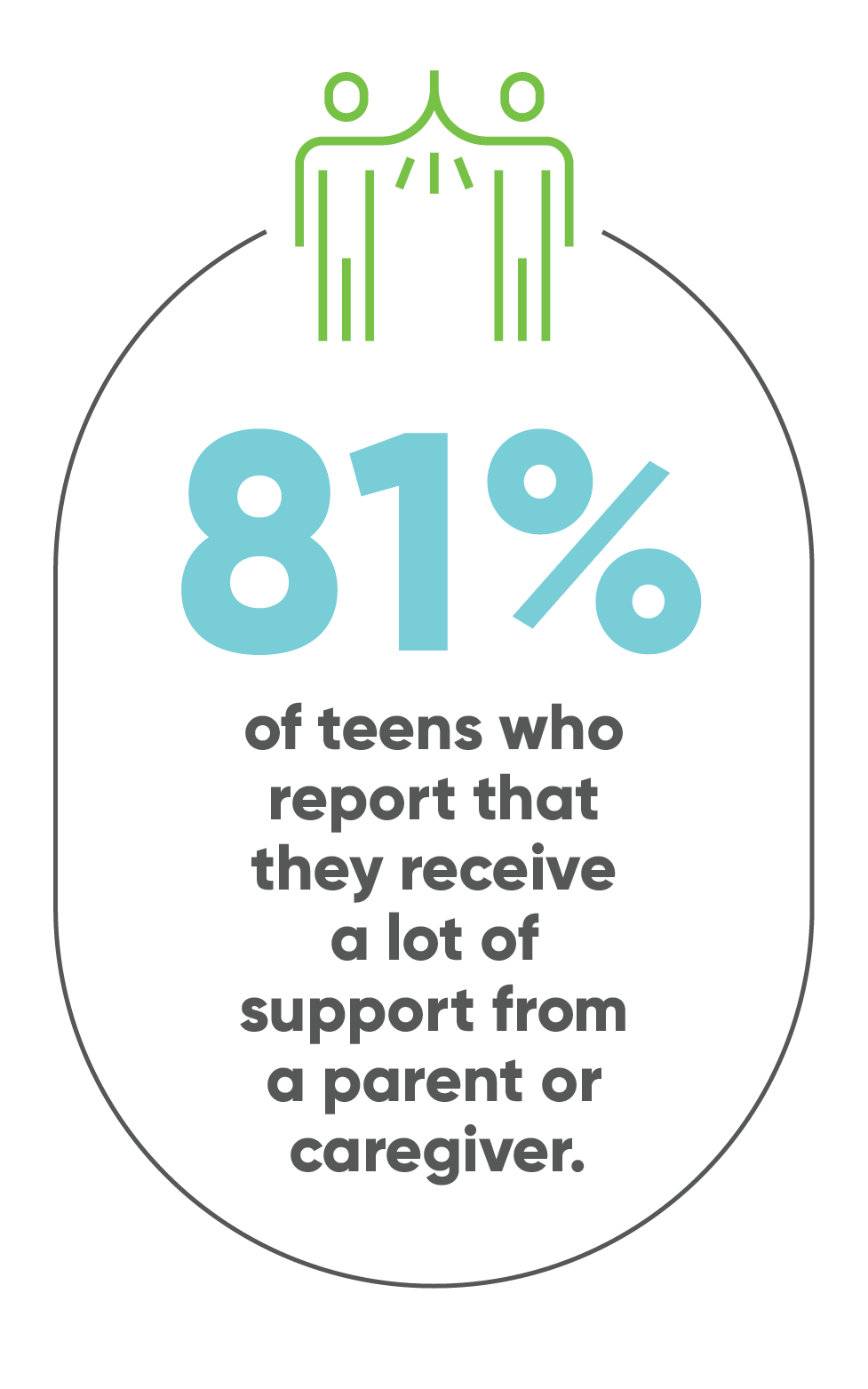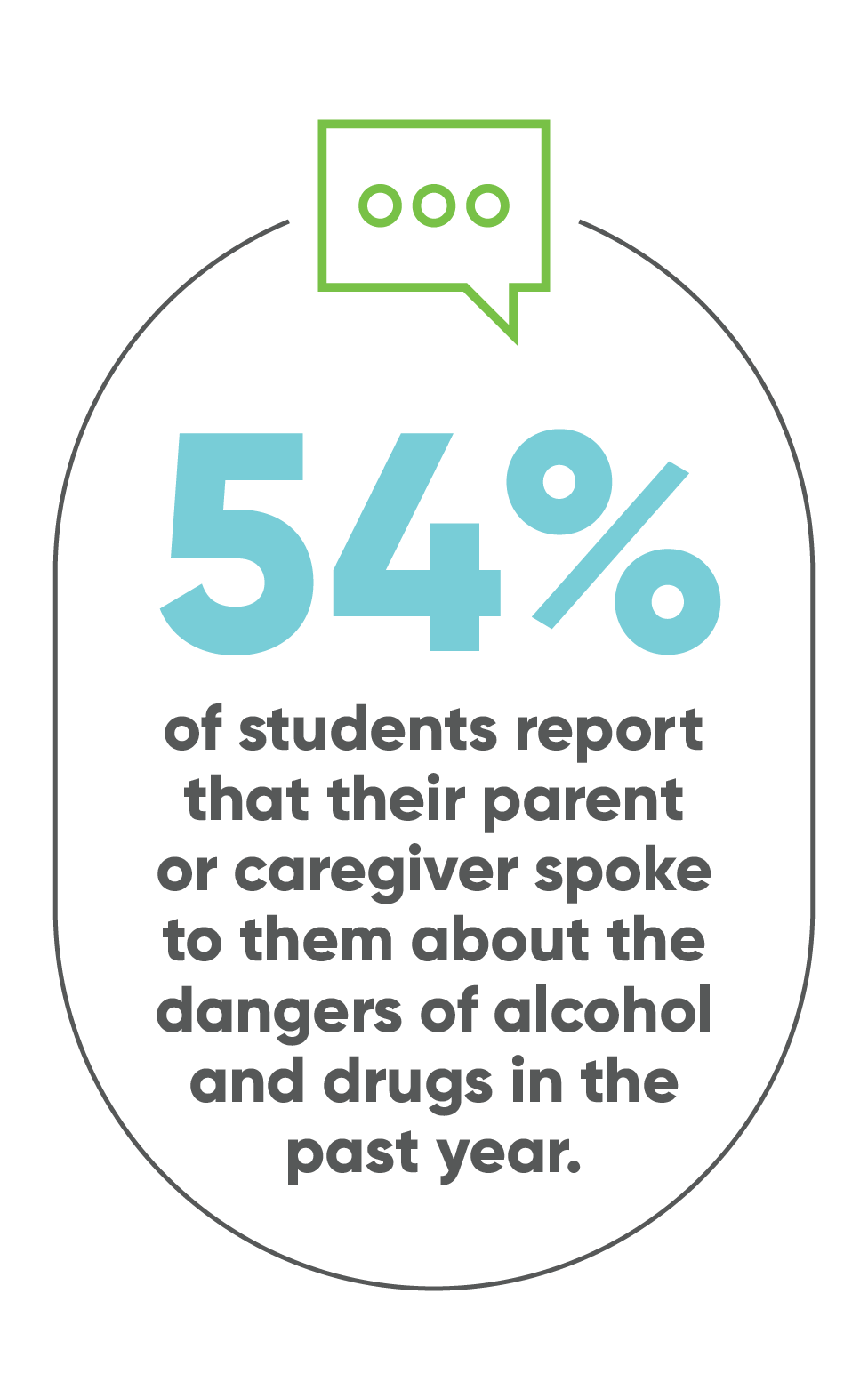There are many ways parents can help their children make healthy choices. Protective factors involve making sure that your child is connected to strong, healthy relationships at home, at school, and in the community. Studies show that young people who are supported in pursuing their interests, know that they are loved, and are allowed to contribute to their community are far less likely to be involved in negative activities.
What does that look like? It looks like much of what parents already do.
What can parents do? Spend time with each child, maintain clear expectations set in family values, have them help around the house, encourage them to engage in activities at school or the community. Even from an early age, children are faced with making difficult choices. Find opportunities to tell your child that you are proud of them and that you love them. Help them find the confidence and skills that you know is within them.
Protective Factors
WHAT PROTECTIVE FACTORS CAN LOOK LIKE
- Strong and positive family bonds
- Parental monitoring of children’s activities and peers
- Clear rules of conduct that are consistently reinforced within the family
- Involvement of parents in the lives of their children
- Success in school performance
- Strong bonds with institutions, such as religious organizations
- Adoption of conventional norms about drug use
Research shows that many factors influence teens. Most often those factors begin at home. Parents continue to be the number one influence on their child’s decision to make healthy choices. Protective factors allow children to be resilient in difficult times, develop healthy connections to others, and build self-competence.
SOCIAL CONNECTION
Young people can feel lonely even when they are around their peers. Parents can encourage supportive connections with peers and other adults.
- Encourage participation in clubs, activities, or athletics that allow kids to be around their peers and other supportive adults.
- Union County has a robust system of community and school-based programs for kids of all ages. From 4-H to football, taekwondo to tap dance, anime to art; there is something for everyone.
“Parents continue to be the number one influence on their child’s decision to make healthy choices.”


Source: 2021 Union County Parent Perception Survey
HEALTHY DEVELOPMENT
During adolescence, the body and brain are rapidly growing. Even if your teen is beginning to look like an adult, they need your support in this developmental time more than ever.
Remember:
- Teens require 8-9 hours of sleep per night, regular physical activity, and proper nutrition.
- Monitoring social media and limiting the amount of screen time is part of healthy routines for youth.
- Emotional support from parents is as important as ever. Having designated family time and eating together as a family allows for opportunities to check-in.
EMOTIONAL COMPETENCE
Developing skills and understanding is not just about academic success. In fact, we know that social and emotional wellness is equally important to healthy development. As children grow, they are also learning to control their emotions, develop patience and persistence, and build their capacity for empathy toward others.
- Encourage your child to share their emotions with you and recognize the feelings of others.
- Positively reinforce times when your child has been persistent or persevered in difficult times.
- Parents can role model healthy ways of coping with stress.

What’s Being Discussed in Schools?
Strengthen Your Child

WAYS TO STRENGTHEN YOUR CHILD
- Learn your child’s preferences. Do they like sports, science, or the arts? Guide them to opportunities that match their strengths.
- Build their tool chest by developing their skills and capabilities. Service projects, work around the house, caring for a pet are all excellent ways to build competency.
- Notice when your child views something as unfair or not right. Ask their opinion on those situations. These are opportunities to reinforce values.
- Promote healthy boundaries. They should expect to be treated well by others and, if needed, stand up for themselves.
- Help your child see situations from the perspective of others. Let them know when they handled a difficult situation well.
- Limit screen time. Too much social media or gaming can be problematic for youth.
